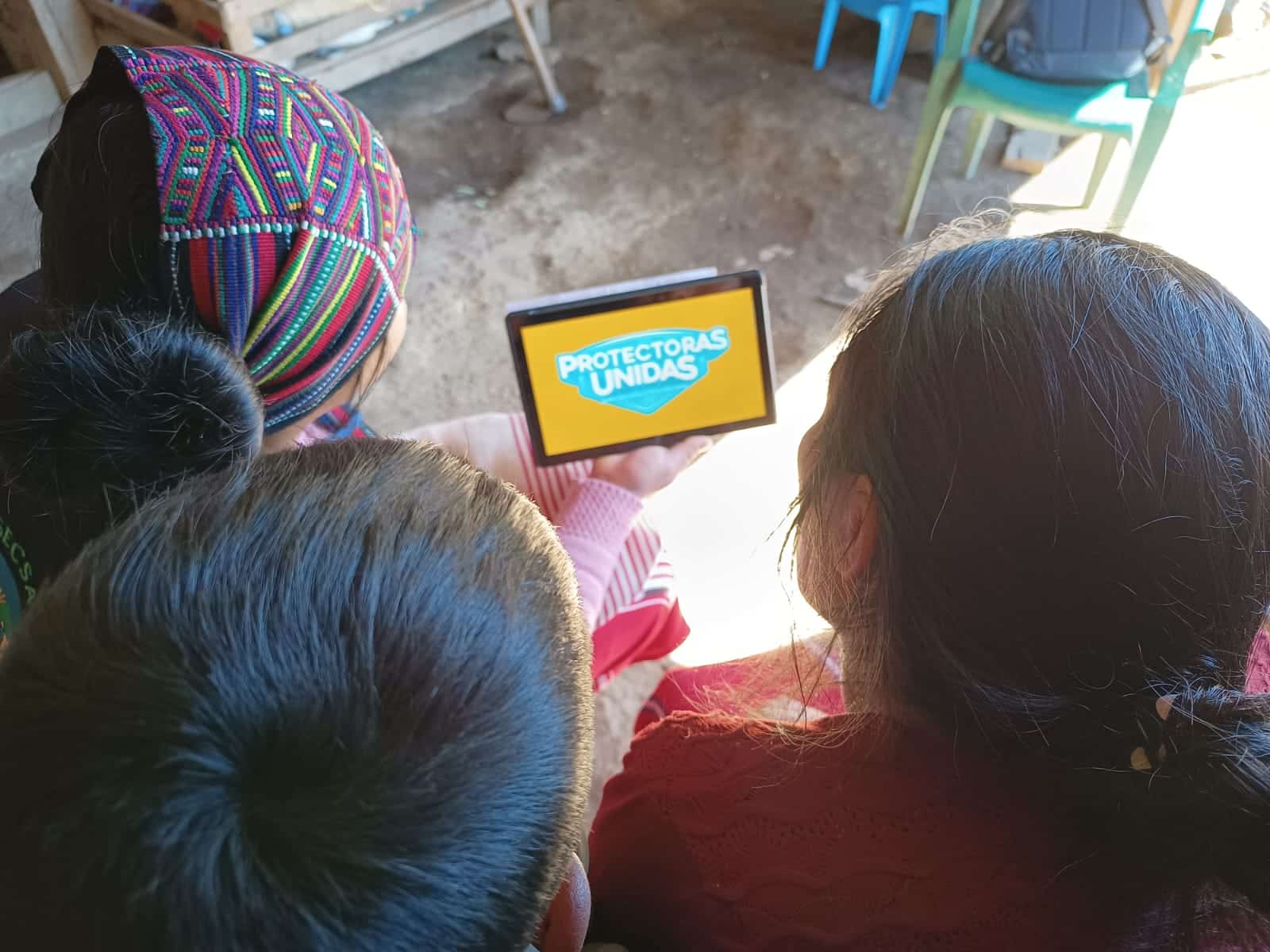The Johns Hopkins Center for Communication Programs-led Breakthrough ACTION-Guatemala project is working with five private sector companies with one goal in mind: To help rural mothers and grandmothers improve the health of their children.
The companies – which sell chicken, chlorine cleaning products, fortified sugar, cement for flooring and banking services – were equal financial partners in a campaign aimed at improving health through better understanding of how nutritional foods, better hygiene and saving money can all contribute to keeping children healthy.
“We have developed a health communication and brand campaign co-created and co-financed in conjunction with leading private sector companies that reflect an interest in joining forces to reduce chronic malnutrition in the country,” says CCP’s Ana Esquivel, senior private sector engagement officer at Breakthrough ACTION in Guatemala.
Under the umbrella of Protectoras Unidas, with its tagline “Together for healthier girls and boys,” CCP used in-person conversations, radio and social media for three months starting in February to engage mothers and grandmothers in what they can do to support children’s health during the first 1,000 days of life.
In monitoring conducted after the end of the campaign, 83 percent of the mothers participating in the project consider themselves to be Protectoras Unidas, and the reasons given are fully in line with the key messages of the campaign.
“What resonates with mothers and grandmothers is that this concept makes them feel like they are working together toward a common goal, makes them feel they have the power to help their children be healthier with every action they made in a normal day,” Esquivel says.
While many Guatemalans know that healthy food and a clean environment can prevent children from getting sick, this campaign went further, highlighting the value of saving money now in order to be prepared for the expense of an emergency in the future and the benefit of concrete floors over dirt floors which can serve as a breeding ground for parasites, bacteria and insects that cause respiratory diseases, immunodeficiencies and diarrhea.
While companies are involved in the creation of Protectoras Unidas messaging, CCP is not endorsing the purchase of specific products. At the same time, more people may use their products if they better understand the role they could play in the health of their children.
Meanwhile, as a result of the campaign, partners Cementos Progresso and Banco Industrial will be providing 200 households with new cement floors – for free – in the coming months, Esquivel says.
Another phase of the campaign begins shortly, with a new animated character, Doña Pilas, a young energetic mother of three small children. As a woman in her community who others seek out for advice on health and hygiene, she will share her everyday experiences with mothers who share her challenges.
In the first phase, Esquival says, she and the team learned that even though radio coverage is widespread in rural areas, mothers are not tuned in as much as was anticipated. Another issue is a lack of strong internet connection. In the second phase, as a result, they are looking to supplement the campaign with other kinds of media, including WhatsApp and on free hotspots that are placed in the near markets.
The campaign, however, will come to close later this year, as the team prepares for the end of the eight-year Breakthrough ACTION project.
Yet, by working with the private sector on these key issues, Esquivel says the plan is for the private companies to continue working to reinforce the awareness and values of Protectoras Unidas as a health brand, which can be used more widely and even in other areas such as education.
“This brand represents quality, trust and a guarantee to support the improved nutrition and health practices in rural Guatemala,” she says. “We really hope it will help moms feel empowered to make their kids healthier and happier.”





